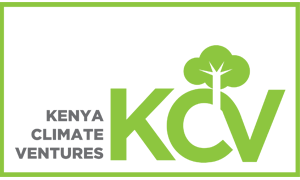Kenya’s northern frontier is home to marginalized, poverty-stricken and vulnerable communities. Approximately 16 million Kenyans, almost one-third of the country’s population, currently reside in these drylands. This heightens the need to address these communities’ environmental, economic, and social challenges.
Pastoralism, one of the traditional livelihoods in these areas, is currently threatened by climate change. The increasing frequency and intensity of droughts in this area, coupled with the rising temperature, has decreased herd sizes and hindered herds’ ability to recover between droughts. Furthermore, this practice is associated with inequality and gender discrimination.
Although pastoralism remains an economically viable livelihood in the drylands, fewer people can practice it. Research has indicated that by 2030, the majority of the population in these areas will not engage in pastoralism. For example, according to a study examining income and asset poverty (2017), 70% of households in northern Kenya do not own livestock and are excluded from the practice.
Gender discrimination is a significant challenge in Kenya’s drylands. The patriarchal norms associated with pastoralism make it difficult for women to engage in the practice. Women also have limited access to opportunities and resources necessary for adaptation due to institutional gender bias and sociocultural traditions that marginalize women, further exacerbating their vulnerability.
Drylands have vast economic potential. According to the IIED publication on climate-resilient drylands, 44% of cultivation systems and 50% of livestock globally are located in the drylands. However, there is room to develop alternative and more inclusive livelihoods through impact investing, reinforcing the traditional approaches and addressing the communities’ challenges.
In the context of Kenya’s drylands, investments need to address the current market challenges by creating gender-inclusive markets. One way to achieve this is to invest in natural product aggregation, including alternative value chains such as gums and resins, honey and baobab. Traditionally, natural product aggregation is associated with high women engagement; thus, women and other vulnerable groups will benefit from these investments.
Kenya Climate Ventures (KCV) has recently invested in HornAfrik, a gums and resins production enterprise operating in Northern Kenya. The company aims to enhance women involvement in the aggregation process, thus providing additional income and boosting economic activities in the region. The company has also placed its collection points strategically, thus tackling the challenge of accessibility that prevents women from engaging in such activities.
Providing alternative livelihoods and creating gender-inclusive markets empowers women by increasing their income and subsequently benefiting their dependents. Ultimately, the outcomes of these investments will enhance women’s recognition and social status in their communities. This is particularly important as women empowerment has been recognized as a means to realize sustainable development, which incorporates participation in environmentally friendly practices and enhances the community’s resilience.












